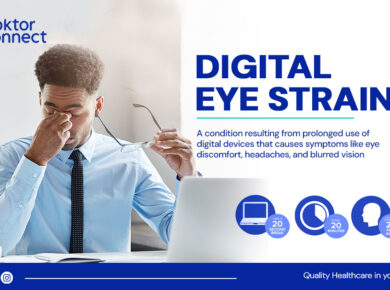COVID-19 has become an adaptive challenge that is reshaping every sector and institution in virtually every nation across the globe.
In Africa, one of the areas in which it is bringing about the advancements of new explorations and frontiers is in the health sector particularly with regards to the use of telehealth (also known as telemedicine).
The possibility of online doctor consultation or chatting with a doctor online became a necessity (dependent on its availability) in a scenario where many people had to be locked down in their premises and unable to move freely about in many cities across the world. ‘Online doctor apps’ internet-mediated user-friendly mobile applications are making this possible.
In Nigeria, the history of telemedicine can be traced back to 2010 when a pilot project at the Lagos University Teaching Hospital (LUTH) began employing the use of technology in medical education and services besides being an enhancing communication tool between medical experts in the country and overseas.
However, it is the novel coronavirus that is spotlighting the real potentials of telemedicine in Nigeria. The government at various levels which had previously been slow in catching up with the future of healthcare embedded in telehealth are beginning to show overwhelming willingness in deploying the use of technology both to save lives and deliver quality healthcare to the masses. The giant of Africa is now seeking ways of leveraging on telemedicine tools to combat the COVID-19 pandemic.
Before COVID-19, as in many other African countries, healthcare could only be accessed by visiting hospitals and clinics physically. However, thanks to DoktorConnect and other telehealth innovation providers, the conversation is now shifting in favour of online doctor appointments via online doctor mobile apps or online doctor websites. The nation is now seeking such a healthcare apparatus that makes it possible for healthcare practitioners to provide their duty of care both qualitatively, safely, and remotely.
In spite of the late entry of Nigeria into the GSM market, the country has become the leading nation in Africa in the telecommunication sector. Between 2001 and 2020, the telecommunication industry has seen massive improvements and expansion so much that Nigeria is now the 6th country in the world with the largest number of mobile internet users. With access to the internet being so prevalent, the foundation has been laid for the success of telemedicine.
According to Dr Osita Aniemeka, there are 4 cardinal points for the success of telemedicine in Nigeria so far, viz:
- Stemming the spread of COVID-19 with telehealth: There are a handful of tele-COVID services running at the moment and it is reported that the isolation centers that entered these services are able to identify the critical cases in a very short time for further isolation and attention. Testing is faster and emergency care is better directed.
- Continuous Monitoring: There are some infected persons that need to be kept under observation round the clock and this is where telehealth comes in handy in Nigeria. Telehealth is currently being used in a lot of COVID-19 intensive care units. There, the patients need to be monitored continuously. With the technology, the experts can quickly identify certain distractions, sudden changes, and other important signals.
- Bolstering second opinion: Second opinion in medicine is a decision-support tool for ratification or modification of a suggested treatment, by another physician. During the COVID-19 pandemic, second opinion had a critical influence on the testing, treatment, and prognosis. A simple phone call, a video from tele-COVID centers, etc., can provide that now.
- Facilitating home rehabilitation: When the infected recover from the pandemic or is still being treated in the remotest parts of the country, telemedicine is pretty useful for them. Healthcare professionals and specialists have kept a check on these persons even when they are at home, which means that if and when a patient starts acting unusual, the healthcare personnel will immediately know about it and will take help and rescue steps.
Indeed, telehealth is not only proving to be a blessing to Nigeria’s healthcare delivery in the midst of a pandemic. It is here to stay. And with the robust yet affordable solution being provided by DoktorConnect among others, it is not out of place to conclude that the future of medicine globally is in telemedicine.



